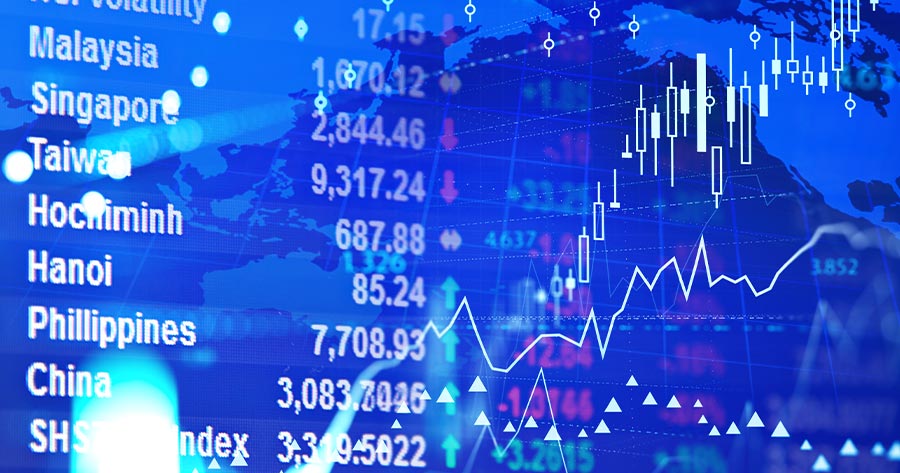On Monday morning (23 June, 9:19 AM, GMT+7, Bangkok time), most major indices in Asia Pacific exhibited a downward trend as an uptick in geopolitical tensions, triggered by a U.S. strike on three nuclear facilities in Iran, intensified investor anxiety and pushed oil prices higher.
Japan’s NIKKEI declined by 0.49% to 38,215.01. South Korea’s KOSPI dropped by 0.74% to 2,999.49, and Australia’s ASX 200 fell by 0.88% to 8,430.6.
As for stocks in China, Shanghai’s SSEC slid by 0.07% to 3,357.6. Hong Kong’s HSI decreased by 0.8% to 23,342.4, while Shenzhen’s SZI climbed by 0.05% to 10,009.58.
The U.S. stock markets were mixed on Friday as NASDAQ contracted by 0.51% to 19,447.41. S&P 500 lost 0.22% to 5,967.84, while the Dow Jones Industrial Average (DJIA) surged by 0.08% to 42,206.82. VIX slumped by 6.99% to 20.62.
As for commodities, following the U.S. attack on Iran, U.S. crude climbed $1.32 on Monday morning, reaching $75.16 per barrel—a 1.79% increase—while Brent crude, the international benchmark, rose $1.34 to $78.35 per barrel, marking a 1.74% climb.
This came despite the lower price settlement on Friday as Washington introduced additional sanctions targeting Iran and President Donald Trump indicated that he could wait up to two weeks before determining the scope of U.S. participation in the Israel-Iran standoff.
Meanwhile, gold futures shrank by 0.29% to $3,375.8 per Troy ounce.




